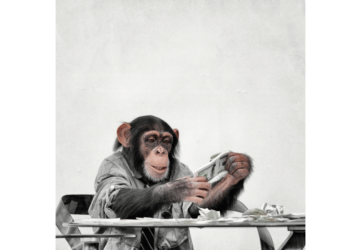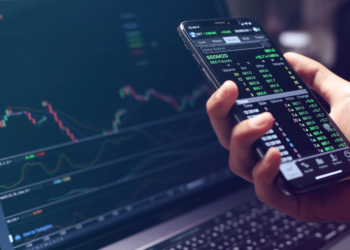We are constantly hearing in the news reports that inflation is not coming back into its zone, the US economy is growing surprisingly fast because consumer spending is still very much intact and the housing market is making a rebound; this is making the hawkish efforts taken by Fed from the past one year lose its weight, which can be a detrimental sign for the economy.
But what does this all mean?
As the US economy is not cooling down as expected by the Fed and is continuously growing over the trend; this means that inflation is not under control, and the central bank will further strengthen its efforts to hike interest rates in the coming months to achieve its 2% inflation target.
All of this is contributing to increasing people’s worry about a potential recession at the end of 2023 or the start of 2024, and the potential impacts of a recession on the stock market and the overall economy.
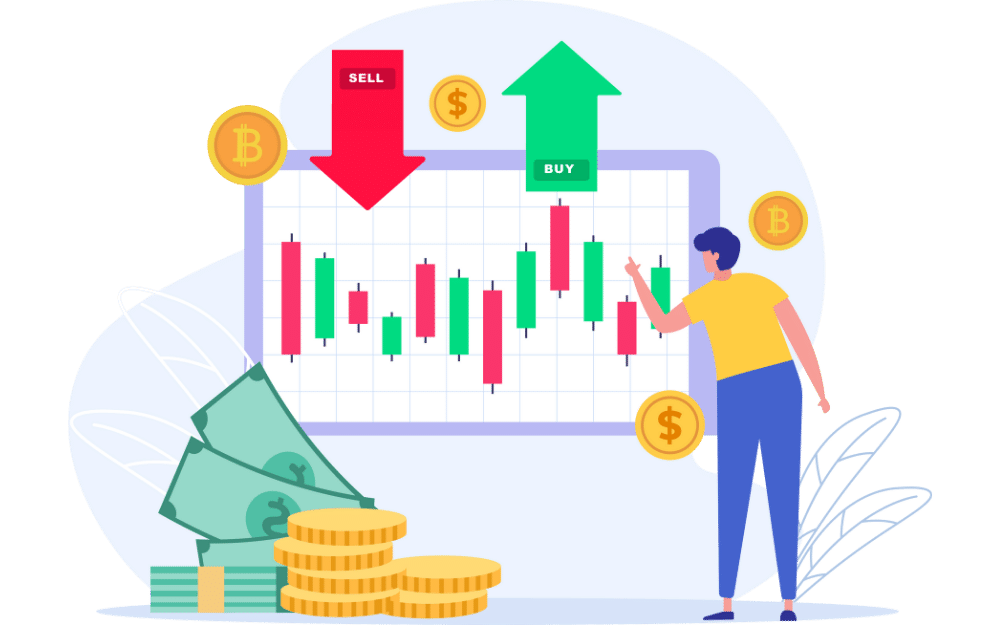
How does a recession affect the stock market?
As we are clear on this matter that threats of a recession are looming over the US economy, we have to understand what will be the impact of a recession on the stock market, and how can you protect your wealth from destruction during a recession.
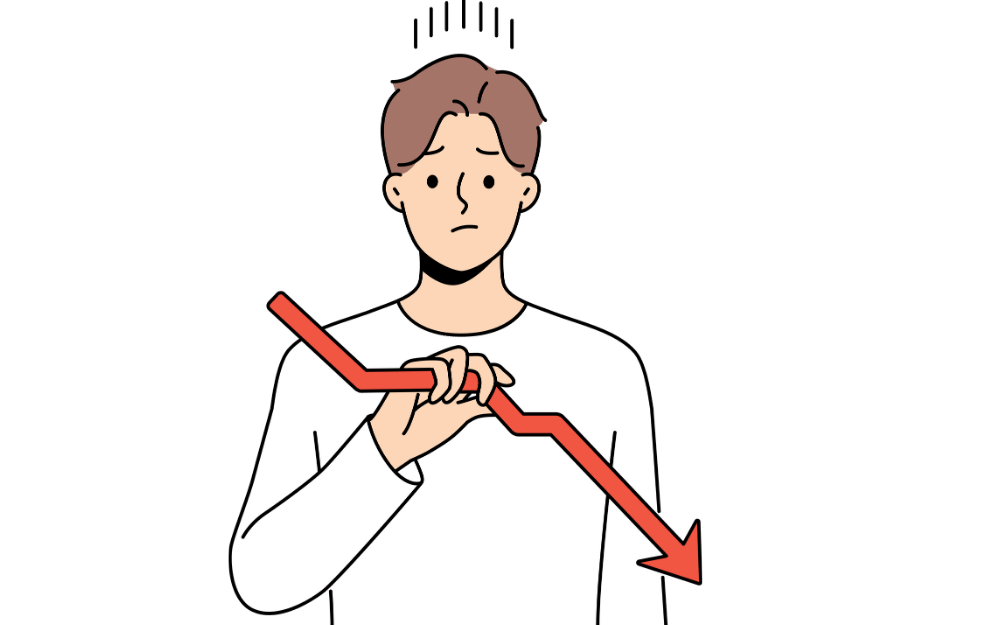
Lori Calvasina a strategist at RBC capital markets wrote in a note to her clients, said that “Time will tell whether the stock market can look past any recession that occurs in 2023 or 2024 as the U.S. economy completes its transition into the post-COVID era,” she added on by saying that “But It’s worth keeping in mind that while this would be rare, it wouldn’t be entirely unprecedented.”
Recessions in a historical view and their impact on the stock market
The US economy has seen a lot of recessions in the past hundred years, starting with the great depression of 1937. Historically, there have been 13 recessions dating back to the great depression of the US economy, according to Lori Calvasina. The average length of the recession in the economy can also be measured as almost 381 days.
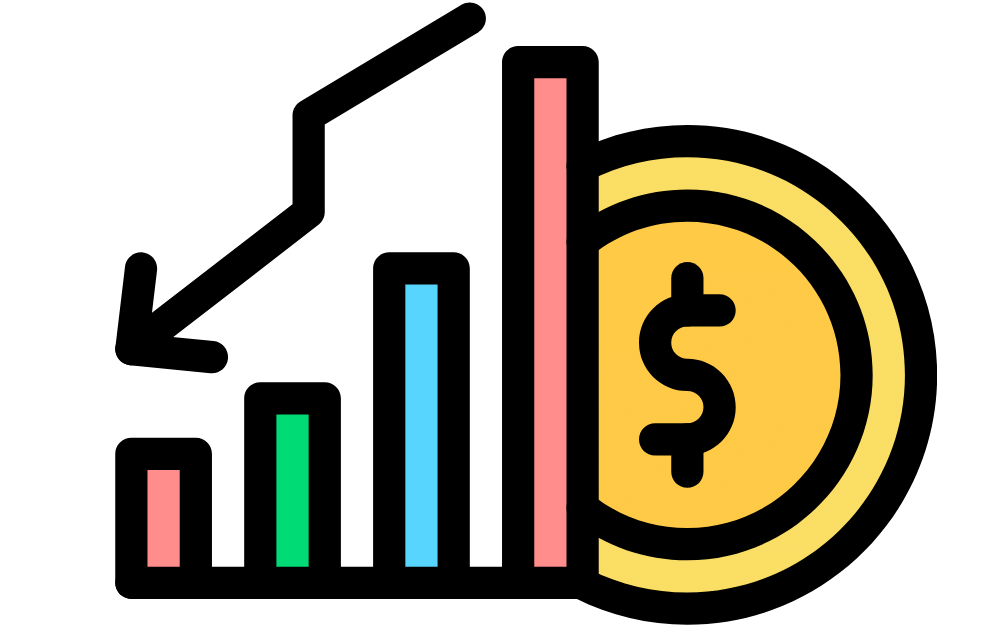
The S&P 500 usually dropped in a range of 14% to 57% during these recessions with an average decline of 32%. Something similar happened during the financial crisis of 2008, when the economy fell into a recession and the S&P 500 along with other markets plummeted in the red zone about 38.5%.
However, it’s not necessary that the stock market always follow the same pattern, as seen during COVID-19 when returns from the S&P 500 were still intact at 16.3%, which showed an impressive performance.
The Chain Reaction
The fears of a possible recession started mounting in 2021 when the annual core inflation started reaching record heights, which had not been witnessed since the 2008 financial crisis. As inflation went over 5% for the first time in more than a decade, people started fearing the Federal Reserve would adopt a hawkish policy against inflation and increase interest rates.
Interest rates are the most important component in the monetary policy that the Fed can influence to combat rising inflation. When the Fed raises its policy rate, it influences the rate at which banks lend to each other or the interbank rate, and at which they lend to the consumers from their cash reserves.
Moreover, the Fed can impose strict reserve requirements on the banks during a high inflationary period, which limits the banks’ ability to lend. Now, they cannot use that cash to give loans, this increases the cost of borrowing and incentivizes banks to save money. This in turn increases the interest rates earned on the savings account, which also incentivizes consumers to save more and spend less.
As consumer borrowing becomes expensive, people start to reduce their luxury spending and businesses stop their expansion plans. This is a good omen for the prices as the reduced demand will curb the pressure on the items, and the prices will start to reduce, but it can be risky for the economy. As businesses’ ability to earn and expand dampens, they start laying off workers to reduce costs and save money, which increases the unemployment in the economy which will result in further lowering the demand.
Looking at all of this situation, stock markets will start feeling the impact of the recession, as investors would pull out their money from the stock markets. Moreover, a drop in industrial and consumer demand will damage corporate profits and will bring negative sentiments into the stock market, and if you stay heavily invested in the markets then there are chances that you would lose a lot of money.
The Current Scenario
If we look at the present scenario, economists have started to readjust their economic forecasts after three financial institutions and banks collapsed in the month of March, most notably Signature Bank, Credit Suisse, and Silicon Valley Bank.
The economists are arguing that this collapse is a result of the monetary tightening as indicated in the earnings result of big financial institutions like JPMorgan, Wells Fargo, and CitiGroup.
In this situation, continuous rate hikes by the Fed are playing a villain’s role against the economy and the stock markets, which have increased interest rates 11 times in the past 18 months. And the bank is determined to further hikes in the upcoming months to bring inflation sustainably down to their objective of 2%.
As it stands, economists and rating agencies are still predicting a recession this year, with Goldman Sachs seeing a 35% chance of a looming recession for the US economy in the next year.
So How will a recession affect me?
During a recession, you can expect share prices to fall across the markets, without any discrimination among different sectors. This usually happens due to a number of reasons.
Firstly, as we mentioned earlier, during a recession investors’ confidence is shattered, and due to the higher interest rates, people are unwilling to spend money, partly because of the fears of unemployment and wage reductions in the near future.
So, if consumers are not willing to spend, this will reduce the demand and will hurt businesses. This follows a cost-cutting campaign within the businesses, which increases the chances of unemployment and wage reduction, as companies start to cut their R&D expenses and temporarily halt their research projects, which can have a dampening effect on the long-term growth prospects for the companies.
All of these factors contribute to creating a fearful environment among the investor corridors, where they are unwilling to invest more in the stock market, and this follows a decline in the stock market index and share prices, at least for the time being.
As the stock indexes world falls you would begin to see your stock portfolio following a similar trend, and as many investors pull their money out, it would contribute to a vicious downward spiral where stock prices will continue declining until a major change in the Fed’s policy occurs, or there are visible signs of support from the economy.
Unfortunately, a lot of investors lose their hard-earned money during a recession, especially investors who sell their portfolios in fear of further price reductions. To avoid these losses, experts suggest that one should have a long-term investing horizon as, we mentioned earlier an average recession stays for almost 381 days, so by following a long-term investing strategy you would save yourself from selling at a loss during a recession, and can also gain the benefit of value investing, when the stock markets touch the bottom.
What to expect for stock market investing during a recession?
First of all, you need to change your goals during a recession, as now you cannot go forward with the objective of achieving 20 to 30 percent return as you had witnessed during the booming cycle.
But, this doesn’t mean that if you begin thinking as a pessimist and set your goals in the negative, you can still earn enough return to beat the inflation; let’s say 8 to 10 percent is what you should realistically expect if you are following good strategies.
Secondly, don’t get demotivated or discouraged by seeing the stock prices falling every other day, and the best thing to do on those days is to stop actively following the market, else it will bring out your emotions, and anger, and you will go into a depression. The important thing is to hold on to your portfolio and be sure that you have performed a good fundamental analysis of the company while investing just believe in your analysis and the company’s value, as no good company will end up in just one recession.
The economy will eventually recover from the recession phase, and you can get the benefit of staying in there and investing at the bottom, as the stock markets usually grow faster after the recovery which can give you much higher returns and would compensate your losses and wait during the recession.
DON’T WORRY: Stock markets in Europe in red amid falling manufacturing


